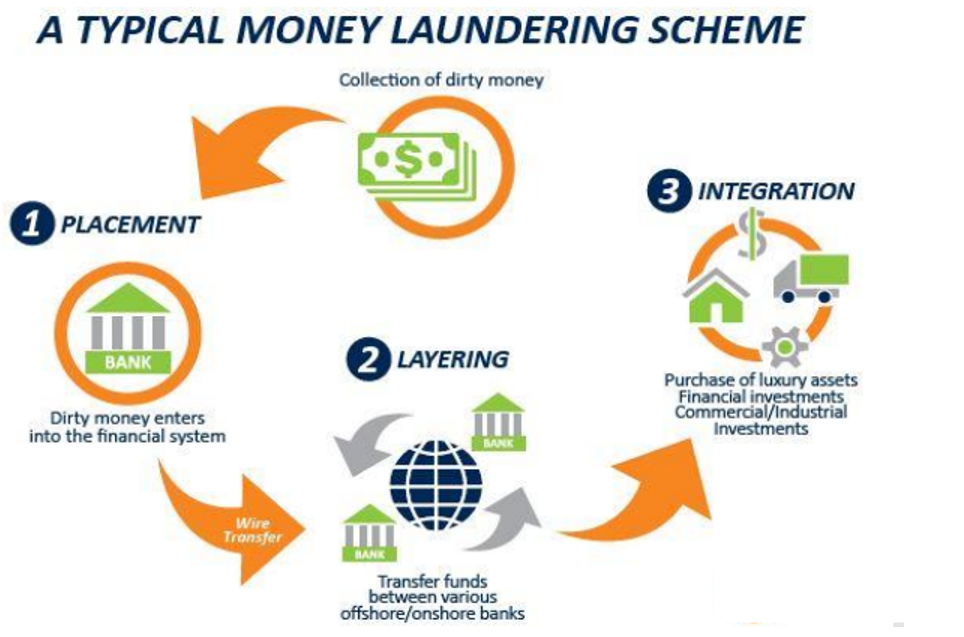Supreme Court Rules Prior Government Sanction Required to Prosecute Public Servants Under PMLA
(Source: Indian Express; Section: Govt & Politics; Page: 06)
| Topic: GS2 – Governance |
| Context: |
|
Analysis of News:

What is PMLA, 2002?
-
- The Prevention of Money Laundering Act, 2002 (PMLA) is an Act of the Parliament of India enacted to prevent money laundering and provide for the confiscation of property derived from money laundering.
-
- It aims to combat money laundering related to illegal activities such as drug trafficking, smuggling, and terrorism financing.
- Key Provisions of PMLA:
-
- Offences and Penalties: PMLA defines money laundering offences and imposes penalties for such activities. It includes rigorous imprisonment and fines for offenders.
-
- Attachment and Confiscation of Property: The Act allows for the attachment and confiscation of property involved in money laundering. It provides for the establishment of an Adjudicating Authority to oversee these proceedings.
-
- Reporting Requirements: PMLA mandates certain entities, such as banks and financial institutions, to maintain records of transactions and report suspicious transactions to the Financial Intelligence Unit (FIU).
-
- Designated Authority and Appellate Tribunal: The Act establishes a Designated Authority to assist in the investigation and prosecution of money laundering offences. It also provides for the establishment of an Appellate Tribunal to hear appeals against orders of the Adjudicating Authority.
Key Judgment Summary
- The Supreme Court ruled that Section 197(1) of the Code of Criminal Procedure (CrPC), which requires prior government sanction to take cognizance of an offense against public servants, applies to the Prevention of Money Laundering Act (PMLA).
- This decision upheld the Telangana High Court’s order dismissing the trial court’s cognizance of money laundering charges against IAS officers Bibhu Prasad Acharya and Adityanath Das, without government sanction.
Section 197(1) of CrPC
- Section 197(1) specifies that any public servant accused of offenses in the line of duty cannot be prosecuted without prior government approval.
- The Court held that the officers in question qualify under this requirement since their alleged offenses were related to their official duties.
Enforcement Directorate’s (ED) Argument
- The ED argued that Acharya didn’t meet the CrPC’s definition of a public servant requiring government sanction and claimed that Section 71 of PMLA supersedes CrPC provisions.
- However, the Court rejected this, stating that PMLA doesn’t override CrPC in this context.
Court’s Interpretation of PMLA Sections 65 and 71
- The Court ruled that Section 65 of the PMLA permits CrPC provisions to apply unless inconsistent with PMLA. As no inconsistency was found between PMLA and CrPC’s Section 197(1), CrPC’s requirement for prior sanction stands.
- It further clarified that Section 71 (PMLA’s overriding clause) does not nullify Section 65, as such an interpretation would render Section 65 meaningless.
Allegations and Case Context
- The ED alleged that Acharya conspired with then CM Jagan Mohan Reddy to violate norms in land allocation for an SEZ project, indirectly enabling money laundering.
- Das allegedly violated water allotment norms to favor India Cement Limited, also linked to money laundering.
- However, the Court ruled that cognizance of these charges was improperly taken without the mandatory prior sanction under Section 197(1) of CrPC.
Implications of the Ruling
- This ruling emphasizes the protection public servants have under Section 197(1) CrPC, even when charged under special laws like PMLA, ensuring that prosecution requires prior governmental approval if actions are linked to official duties.
What are the Different Concerns Regarding PMLA, 2002?
|
| Practice Question: Examine the significance of requiring prior government sanction for prosecuting public servants under Section 197(1) of the CrPC in the context of cases under the Prevention of Money Laundering Act (PMLA). How does this impact accountability and protection of public servants in India? (250 words/15 m) |
